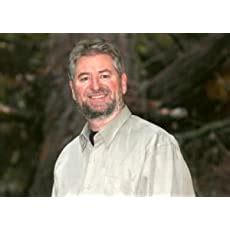A Quote by Edward Bulwer-Lytton, 1st Baron Lytton
The faults of a brilliant writer are never dangerous on the long run; a thousand people read his work who would read no other; inquiry is directed to each of his doctrines; it is soon discovered what is sound and what is false; the sound become maxims, and the false beacons.
Related Quotes
O Lord, may I never want to look good. O Jesus, may I always read it all: out loud and the very way it should be. May I never look at the other findings until I have come to my own true conclusions: May I care for the least of the young: and become aware of the one poem that each may have written; may I be aware of what each thing is, delighted with form, and wary of the false comparison; may I never use the word "brilliant."
Muhammad professed to derive from Heaven, and he has inserted in the Koran, not only a body of religious doctrines, but political maxims, civil and criminal laws, and theories of science. The gospel, on the contrary, only speaks of the general relations of men to God and to each other - beyond which it inculcates and imposes no point of faith. This alone, besides a thousand other reasons, would suffice to prove that the former of these religions will never long predominate in a cultivated and democratic age, whilst the latter is destined to retain its sway at these as at all other periods.
The faults of a writer of acknowledged excellence are more dangerous, because the influence of his example is more extensive; and the interest of learning requires that they should be discovered and stigmatized, before they have the sanction of antiquity conferred upon them, and become precedents of indisputable authority.
As soon as you start acting in an accent, you're sort of out of your comfort zone. Maybe people start getting used to accents after a long period of time. But as soon as you do that, it's not so much as capturing the sound of the way other people speak, it's being able to actually be and move around in the sound.
I think Don Henley is a brilliant contemporary rock writer. He would have been a fabulous poet if he weren't a musician. He was a literary major, and not only that - he's gifted with a brilliant voice. To me, Don could sing the New York City Yellow Pages and I'd buy it. I just love the sound of his voice.
Our characterization of collective folly is that sound judgment is not feasible when there is forced or false agreement in groups. We also show how group polarization sets the stage for risky and even dangerous decisions to be made. How we navigate between false agreement and polarization is the kind of mastery that collective wisdom represents.
I discovered several never-failing signs by which one might know when a man wished to take another wife. He would suddenly 'awaken to a sense of his duties'; he would have serious misgiving as to whether the Lord would pardon his neglect in not living up to his privileges; he would become very religious, and would attend to his meetings ... which seemed just then to be very numerous, and in various other ways he would show his anxiety to live up to his religion.
I notice that Indians love to tweet about each other - will be like, yeah, go India, we're awesome, Indians are awesome, here is another example of an awesome Indian. That's a dangerous false nationalism that I am not interested in. There's a huge amount of diversity within our so-called communities; within the South Asian community, there are people who would never talk to each other.





































